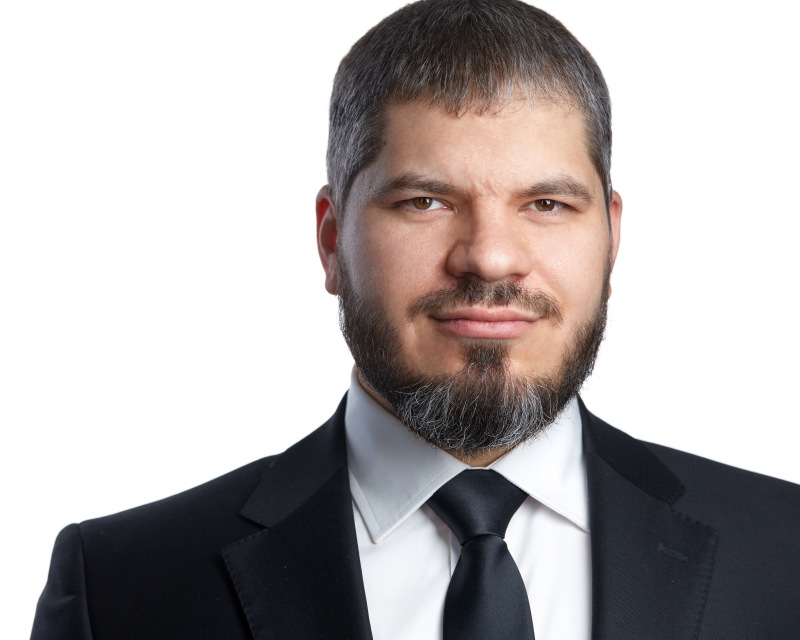
In the context of a changing rhetoric
of international relations, Russian mass media prioritize politics, although in
the daily life of people, the economy plays a dominant role.
Today we publish the opinion of an expert who effectively survived the 2008
crisis and ensured the growth of business during this period, Andrey Kovalev.
Andrey, good afternoon! Your career has begun in Russia; please tell us what
peculiarities of doing business in this country are.
This is a very complex topic, worthy of a separate
course of lectures. Just the other day, I had a conversation with a banker from
Vienna, who expressed his opinion that in Russia you can earn 40% of the
invested funds in one year, go to zero next year, and end up with a result
minus 50% another year, and as a result to be at a loss in three years. In
Austria, as a rule, there is no such volatility, only 4-5% per year, but in
euro and a stable plus.
Another colleague who has lived in Germany for more than 15 years, and now has
a leading business in Russia in providing outsourcing services for German,
Swiss and Austrian companies (accounting and legal support, interaction with
government agencies) said: “Be ready to lose all the assets in Russia that you
own at any time, and when you are really ready, your business will begin to
grow rapidly.”
These two bright quotes clearly reflect the peculiarities of doing business in
Russia today.
Russia occupies an area of more than 6 million square miles and is rich in
natural resources, why is it impossible to make the country richer through
this?
I think it is not a secret that the Russian economy
is 70% state-owned, and, for example, in the transport industry it is 83%. Such
indicator as gross output per employee, say in 2016, in private companies was $
74,000, whereas in companies with indirect and direct state participation – $
60,000 and $ 21,000, respectively. With such indicators of labour efficiency,
we cannot speak of sustainability.
I also want to note that there is no deep processing of major export products,
such as gas, oil, and other natural resources in Russia. Taking into account
the labour potential of the country, we could have been able to supply
ready-made fuel, not crude oil, or, for example, high-quality processed boards,
not round logs.
Do not forget about such important thing as the efficiency of public
administration, which affects many social spheres, such as education, medicine,
pension provision, etc.
Many decisions made at the state level discourage the population and, above
all, youth from entrepreneurship. In my view, the desire of young people to
work not in, say, Google, but in the public service is strange.
The lack of stability and, what is also extremely important, the possibility of
transferring assets and savings from generation to generation discourages the
population from long-term planning of finances, education, etc.
With all of this, Russia has a huge human and resource capital; we can see it
by the number of Russians in the world centres of innovation and progress –
Silicon Valley and Swiss CERN.
Ask any expert who deeply understands what is happening in Russia, and everyone
will give almost the same list of primary objectives to resolve the country’s
problems:
1. To reallocate the budget from law enforcement and defence tasks to the
education and developing human capital;
2. To change the orientation of strategic projects, invest not in a global
show, but in fixed assets, in the processing of natural resources;
3. To build not just another pipeline, the need for which in the long term of
30-50 years is questionable, but to develop basic research and research
centres;
4. Instead of excessive protection of economic sectors and the actual isolation
of the domestic market, to engage in the development of international relations
and the attraction of international investments and technologies…
The list of problems can go on and on: corruption, health care reforms, the
attitude of the state to private property, and much more.
Are there opportunities for the development of international business in
Russia now?
Of course, yes, the question is just what kind of
business. The answer, unfortunately, is beyond what is necessary for the
development of the Russian economy.
In fact, there are two types of business that can be developed now in Russia,
taking into account all the existing political and economic factors: the first
is the service of machinery and equipment brought into the country earlier and
their modernization, if possible, the second is the supply of low cost goods,
ideally these products have to have the labels “made in …” USA, Germany,
Italy, but to be very cheap.
I can’t advise you to invest in fixed assets, in basic capital, since taking
into account the ongoing waves of redistribution of property in the country you
can lose everything in one day.
What are the prospects for the Russian economy in the next couple of years?
Will there be a market economy in the country?
I don’t see development prospects for the next
couple of years, and given the next cycle in the fall in hydrocarbon prices,
the economy is likely to face stagnation, and at an increasing rate. The
paradox of Russia’s development in recent years – the Government cannot ensure
stable economic growth even with extremely high prices for the entire range of
Russian exports. There can be only one conclusion – global structural changes
are needed.
AvtoVAZ has invested $1.35 billion ($0.27 billion annually) in production over
the past five years. Tesla invests more than $2 billion every year, Volkswagen
AG invests $5 billion a year in the development of electric vehicles only. The
entire Russian large manufacturing industry together invests less than one
Volkswagen AG. As we all know, in order to make competitive products in the
modern world, it is necessary to invest and develop production now, with an eye
to the future, rather than relying on the legacy of a previous era, which is
hopelessly outdated at the current time.
Small businesses, which are not interesting to the state – cafes, barbershops,
ateliers – will remain private; the rest will be threatened with full
nationalization.
What advice do you have for foreign investors who have already invested
their money in Russian enterprises?
If possible, switch to a business model that does
not require relatively high investments in fixed assets in Russia.
To outsource part of the labour functions, to lease assets from local companies
to be ready to curtail their activities quickly; and in order to reduce country
risk, to diversify resources and assets between countries of the [Eurasian]
Customs Union.
Thank you for your time and great insights! Today we had an opportunity to
interview one of the Russian financial influencers, Andrey Kovalev.

